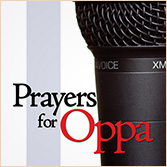Tete-a-tete Archives
An eclectic sampling of my award-winning humor columns. New columns can be read online at www.nashuatelegraph.com on the first Thursday of the month, with columns posted here later in the month.More in "Tete-a-tete"
- Tete-a-tete: Blue Apron - a Pandora's box of weekly culinary adventures
- Tete-a-tete: Serve up a slice of family traditions, new or old
- Tete-a-tete: 'Family court' has a whole new meaning at our house
- Tete-a-tete: Drafted on the farm: Grandpa's war at home
- Tete-a-tete: With family, you have to give it the ol' college try
- Tete-a-tete: Walk a mile in my Boots: Viva la feline difference
- Tete-a-tete: Slacker movies offer unlikely heroes
- Tete-a-tete - Bag that theory: Purse contents aren't all that enlightening
- Tete-a-tete: Keeping up with the pace of modern-day elder care
- Tete-a-tete: Easter dinner reveals a shocking family secret
- Tete-a-tete: Time flies when you forget to change the clocks
- Tete-a-tete: Here in New Hampshire, we don't take voting 'for granite'
- Tete-a-tete: An Eagle takes flight in another family milestone
- Tete-a-tete: When choosing heirlooms, cross your Ts and dot your ... claims
- Tete-a-tete: Even the best-intentioned Christmas traditions can fail to take hold
- Tete-a-tete: How to enjoy a wedding, even if it's not your own
- Tete-a-tete: A tale of unintentional cat ownership
- Tete-a-tete: Admissions about the college admissions process
- Tete-a-tete: Avoiding car-tastrophe while purchasing a new vehicle
- Tete-a-tete: As American as apple pie: U.S. culture, through other eyes
- Tete-a-tete: The geek gene runs strong in our family
- Tete-a-tete: Grieving entertainment losses with a few simple steps
- Tete-a-tete: Parents, do not give your child the name equivalent of the April birthstone
- Tete-a-tete: Memento or clutter? Don't leave that decision to the historians
- Tete-a-tete: How Mom and Dad saved Christmas (and a hamster)
- Tete-a-tete: Having trouble keeping your New Year's resolutions? It could be "If You Give a Mouse a Cookie" Syndrome
- Tete-a-tete: When Christmas starts before Thanksgiving (a reflection on temporal discombobulation)
- Tete-a-tete: Sizing up a new family pet, or the difference between a cat and a hamster
- Tete-a-tete: When your worst fear comes true
- Tete-a-tete: Family game night can leave you drawing a blank
- Tete-a-tete: When you have a really good reason to skip class
- Tete-a-tete: The downside to the world's most flattering bridesmaid dress
- Tete-a-tete: Say it with flowers - just don't say where you got them
- Tete-a-tete: Shockingly true tales of my Herculean, heroic great-grandpa
- Tete-a-tete: For goodness 'sakes - generational namesakes can confuse
- Tete-a-tete: Confused by the weather? Signs spring has almost sprung
- Tete-a-tete: Seeking the Holy Grail of a universal bridesmaid dress
- Tete-a-tete: Love poetry gone bad, or why I'm still not allowed to use matches
- Tete-a-tete: A traveler's guide to the Big Apple
- Tete-a-tete: Feats of strength aren't just for Festivus festivities
- Tete-a-tete: Change comes from within - sometimes, literally
- Tete-a-tete: Car games: from punch-buggy to punching cell phone buttons
- Tete-a-tete: I mustache you a question about costume practicality
- Tete-a-tete: Functional furniture is making my family dysfunctional
- Tete-a-tete: Jungle Speed board game can bring out the beast in you
- Tete-a-tete: To call it a ‘mooving’ ride would be inaccurate
- Tete-a-tete: When saying ‘sweetheart’ just won’t do
- Tete-a-tete: Eat your heart out, Festivus: Stymchastynchula is here
- Tete-a-tete: Hoping Korean music can explode in the U.S. with a K-pop
- Tete-a-tete: Holidays, especially with Grandma, are always colorful
- Tete-a-tete: Sometimes, it's the grilled cheese that makes the memories
- Tete-a-tete: Still recovering from Dad's forays into home education
Tete-a-tete: Eat your heart out, Festivus: Stymchastynchula is here
With Thanksgiving now firmly under our belts, there’s a whole slew of winter holidays to which we can look forward. Depending on your religious affiliation, ethnicity and cultural preferences, you may celebrate Christmas, Hanukah, Kwanzaa, Saint Lucia’s Day or even Festivus.
This year, a holiday that forms an important part of my heritage also happens to fall in December. It is Stymchastynchula (pronounced stim-CHAH-stin-CHU-la), a celebration that does not discriminate against any race, creed, ethnicity, income bracket and so forth.
Stymchastynchula originated in Pennsylvania back when Dad was a university student. A new era of political correctness was dawning, and, with Kwanzaa still relatively new on the holiday scene, professors were making a concerted effort to respect the backgrounds of their students.
When Dad forgot to study for a test, therefore, he knew exactly what to say to his professor:
“I can’t take the test today. It’s Stymchastynchula, the holiest day of my people, and I’m forbidden to write with my right hand.”
The professor was a little suspicious, but rather than question Dad and come across as insensitive or intolerant, she allowed him to postpone the test.
Though Dad made up the holiday on the fly, cobbling the name together out of Polish and Slovak words he had heard his grandparents use, Stymchastynchula has been a crucial element of my siblings’ and my childhoods.
Over the years, the restrictions of the holiday have changed from not being allowed to write with your right hand to not being allowed to do any work whatsoever. After all, Stymchastynchula should be for lefties, too.
Coupled with the floating nature of the holiday (it can be invoked at any time), Stymchastynchula remains a favorite excuse of ours to this day. As in, “I can’t fold the laundry! It’s Stymchastynchula!”
I personally prefer to celebrate the holiday in December, as it makes for a refreshing respite from the hustle and bustle of Christmas preparations. I do occasionally observe an auxiliary Stymchastynchula or two, such as when the driveway needs to be shoveled.
Since the holiday has been around for several decades and still lacks a convincing background story, I thought I would come up with one myself. And so, I give you the imaginary hagiography of St. Ymcha of Stynchula.
St. Ymcha was a cabbage farmer in the rural village of Stynchula in what is now Poland during the 11th century. He was not a particularly successful cabbage farmer, preferring to spend his time in prayer and contemplation of the Scriptures.
One evening, St. Ymcha was shredding cabbage leaves into a bowl for his dinner while reading the parable of the lost sheep. As he studied Jesus’ story of the shepherd who goes to great lengths to rescue a sheep that has gone astray, St. Ymcha was so moved by the great love of God embodied in this parable that he wept over his bowl of shredded cabbage for seven days and seven nights.
After he had finished weeping, St. Ymcha then praised God, singing psalms and hymns for twice seven days and seven nights. He likely would have continued longer, but his stomach began to growl and he remembered his simple dinner of shredded cabbage leaves.
Lo and behold, the salt water of his tears had soaked the cabbage, and his extended time of worship had given the mixture time to ferment. St. Ymcha’s procrastination in the preparation of his meal had resulted in the miraculous creation of the first bowl of sauerkraut, now a staple of Polish cuisine.
St. Ymcha was immediately canonized, making him the only saint to be canonized while still living, and named the patron saint of procrastinators and excuse-makers. In modern times, his patronage has been extended to include convenience store food and pre-packaged snack cakes.
In addition to abstaining from work, the feast day of St. Ymcha, known as Stymchastynchula, is best celebrated by eating food that requires little to no effort to prepare. Takeout is encouraged, as is the consumption of microwave popcorn, toaster waffles, 7-Eleven hot dogs and, of course, sauerkraut.
As we become further embroiled in the preparations required for Christmas, Hanukah, National Fried Shrimp Day and the numerous other holidays that fall in December, I hope you will take some time to celebrate Stymchastynchula. Microwave some popcorn, watch a movie with the family and focus on those aspects of life that are truly important.
And remember: because Stymchastynchula is a floating holiday, it doesn’t have to happen on a set date. It’s there for you whenever you need it – and as many times as you need it.
– Teresa Santoski
Originally published Nov. 28, 2012.
Browse the compendium
Compendium (noun): a summary or abridgment.
Click the icons to the right to check out a sampling of my work.




